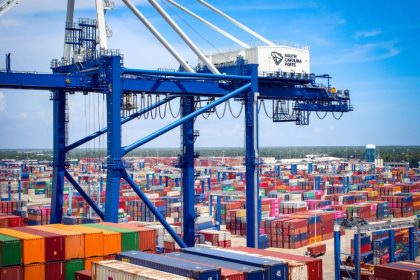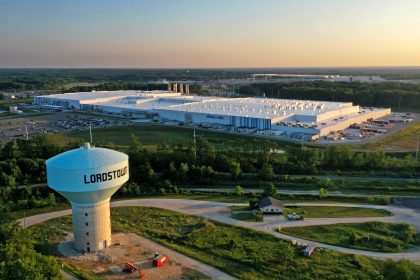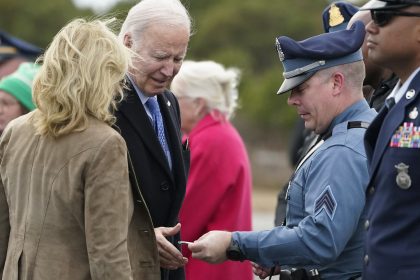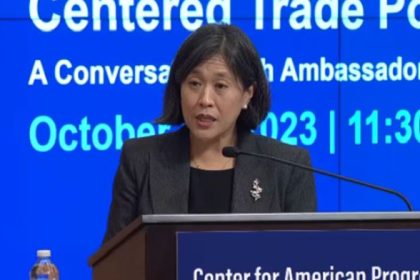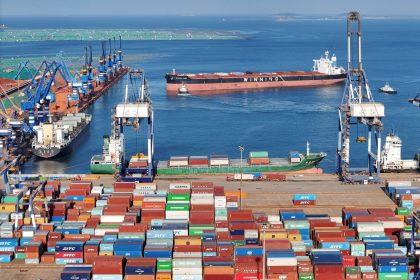US-UK Free Trade Agreement Stalled Over Ag Disputes
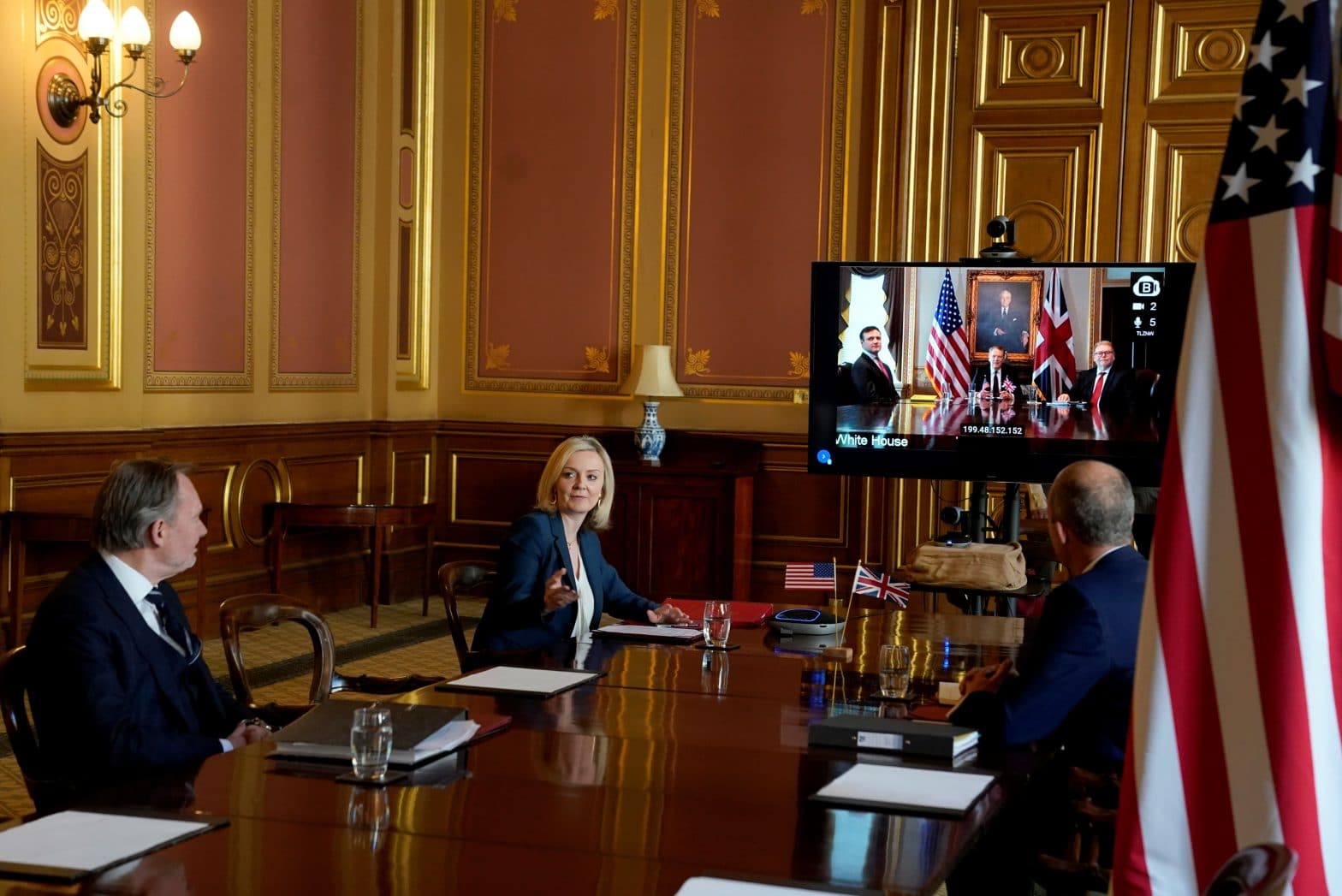
Trade agreement talks between the United States and the United Kingdom have been tabled for the foreseeable future over a disagreement concerning agricultural practices.
U.S. Trade Representative Robert Lighthizer revealed the impasse during testimony before the House Ways and Means Committee last week.
Lighthizer, who spent more than 8 hours on Capitol Hill last Monday said the United States will not compromise its position on agricultural practices as it negotiates a post-Brexit free trade deal with the United Kingdom.
“We either have fair access for agriculture or we won’t have a deal with either one of them [the United Kingdom or the European Union],” he said.
The “fair access” Lighthizer is seeking is the ability of American farmers being able to sell food to United Kingdom farmers without tariffs.
Johnson’s ‘Dual-Tariff’ Proposal
In recent months, U.K. Prime Minister Boris Johnson has floated a “dual-tariff” system he hoped would allay concerns on both sides of the bargaining table.
Under the system, products that do not comply with U.K. animal welfare standards would be subject to high import tariffs.
By the same token, a lower tariff regime could be applied to imports that do meet the U.K. standards, such as organically reared, free-range meat.
The National Chicken Council of the United States took issue with Johnson’s plan, insisting that “any free trade deal be just that – free and fair – unfettered by any tariff or non-tariff barriers.”
Lighthizer also expressed dissatisfaction with the plan, telling the House Ways and Means Committee that UK standards should not be applied at the expense of American farmers.
“One thing is for sure, we’re not going to be in a position where our farmers aren’t treated fairly,” he said.
Lighthizer went on to explain the U.S.-U.K. trade negotiations had reached an impasse due to the United Kingdom’s claim that food from America is “unsafe”, which he believes to be “thinly veiled protectionism.”
Lighthizer refuted the United Kingdom’s stance on American food by stating, “I would say the United States has the best agriculture in the world. It has the safest, highest standards. And I think we shouldn’t confuse science with consumer preference.”
What the United Kingdom appears to most object to is the U.S. meat processing practice of washing chicken in chlorine and other disinfectants to remove harmful bacteria.
The practice was banned by the European Union in 1997 over food safety concerns. It has stopped virtually all imports of US chicken meat which is generally treated by this process.
But Minette Batters, president of the U.K.’s National Farmers Union, said recently the discomfort is “not just about chlorinated chicken.”
“This is about a wider principle,” Batters said. “We must not tie the hands of British farmers to the highest rung of the standards ladder while waving through food imports which may not even reach the bottom rung.”
She added, “To sign up to a trade deal which results in opening our ports, shelves and fridges to food which would be illegal to produce here would not only be morally bankrupt, it would be the work of the insane.”
Trade Potential, the Space Sector and Beyond
Discussion of a post-Brexit free trade agreement began in March. It was then that the U.K.’s Department of International Trade released a 184-page document detailing how it intended to approach negotiations with the United States, its objectives for the trade deal, public response on a U.S.-U.K. agreement, and a preliminary assessment of the U.S.-U.K. trade agreement before it’s put into effect.
According to the document, a free trade agreement between the two nations would boost the total trade value between them “by £15.3 billion [just over $19 billion ] in the long run [15 years from the agreement] … and increase U.K. workers’ wages by £1.8 billion [about $2.2 billion].”
In addition, the agreement would seek to be geared toward the benefit of exchanging professional services such as those of accounting, architecture and legal services, as well as “maximising the United Kingdom’s reach in emerging fields like global data flows and artificial intelligence.”
In terms of global data flows and AI, the United States and United Kingdom have already brokered progress in this area.
On June 16, the U.S.-U.K. Technology Safeguards Agreement was signed between the two countries, allowing U.S. companies to participate in United Kingdom space launches. American space companies will greatly benefit from the United Kingdom space sector’s success of having 42,000 people employed in the sector, with incomes generating £14.8 billion, or $18.2 billion, [$18.4 billion to $22.7 billion] every year.
The United Kingdom Science Minister Amanda Solloway highlighted the enormity of the space agreement by stating, “This deal with the U.S. takes us one step closer to seeing the first ever launch into space from British soil.
“This is a key moment for our commercial space industry, and I look forward to seeing companies from Scotland to Newquay benefiting, and the creation of highly skilled jobs on both sides of the Atlantic.”
The U.K.’s ambassador to the U.S., Karen Pierce, remarked on the space technology agreement stating, “This agreement marks an exciting new area for U.K.-U.S. space collaboration and represents a significant step towards U.S. companies launching from United Kingdom spaceports.”
Pierce continued, saying “The commercial space sector already represents hundreds of millions of dollars in trade between our two countries each year, as well as thousands of jobs on both sides of the Atlantic. This new agreement will generate further growth and prosperity for both our countries.”
The U.S.-U.K. Technology Safeguards Agreement highlights the cooperation and economic potential between the two allied countries, not just in the space sector but also in the trading arena. The United States is the United Kingdom’s second biggest trading partner, with the European Union being its biggest trading partner.
















